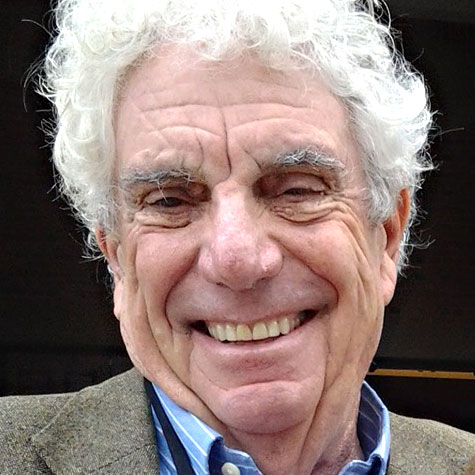The angry man in the back of the room at El Caballero
Country Club in Tarzana was shaking his fist and calling us crooks.
I made a big mistake — eye contact. With me in his range, he
raised his hand, and I think his middle finger, and yelled, “You!” Being a city
ethics commissioner, I didn’t think I should be called a crook in public.
Bill Rosendahl, cable television public affairs moderator
and City Council candidate, leaned over and asked me what was with the guy.
Just don’t make eye contact, I warned. Finally the man, still shaking his fist,
left and we concluded our panel discussion at the annual town hall meeting of
the Tarzana Property Owners Association.
The subject was “Ethics in Politics: Oxymoron? Achievable?
Pipe Dream?” Rosendahl was the moderator. The panelists were Los Angeles City
Councilmembers Cindy Miscikowski, Wendy Greuel and Dennis Zine; City Controller
Laura Chick; lobbyist Steve Afriat; and me.
The room was pretty well filled with members of the
association, longtime Valley activists, some of whom have been in the middle of
every big fight from Bradley-Yorty to Valley secession. They live in the heart
of what political consultants and analysts like to call “the Jewish Valley,”
home to many Jews who are involved in synagogue life, community organizations
and who have a long history of political involvement.
The audience seemed to share the Valley discontent with
downtown that sparked the secession movement last year.
The man in back was an extreme example. He was mad because of
a highly controversial city award of a $33 million contract for a Van Nuys
Airport parking garage and shuttle bus terminal to the firm of Tutor-Saliba,
which has been involved in many disputes over the quality of its work.
Others in the audience expressed themselves in a more civil
manner. But they, too, were unhappy with the city. What particularly galled
some was a proposed increase in Department of Water and Power rates.
They hammered Greuel, Miscikowski, Zine and Chick with
demands that the city councilmembers do something about it, as if the matter
were out of the audience’s hands.
Actually, constituents are not entirely powerless. Public
protests prompted the City Council to delay the increase and to begin a study
on whether higher rates are really needed.
As I listened, I felt frustrated, not particularly with the
audience, because these were good people with a long record of civic
involvement. I was thinking of Angelenos in general: Why don’t they do more to
seize control of their government?
Scholars, analysts and journalists, puzzled by the vast
expanse of a city that has sprawled instead of grown, blame the lack of a civic
culture on an amusement-loving quality in Los Angeles life, exacerbated by
sunshine.
That’s not what I’ve seen in covering Los Angeles for more
than 30 years. I’ve encountered intense political activity in East Los Angeles,
South Los Angeles, the Westside and the Valley. I’ve met many involved people,
such as Los Angeles City Fire Commissioner Louise Frankel, who was in the Tarzana
Property Owners Association town hall audience.
Toward the end of the session, Frankel, who is now president
of the Mountain Gate Community Association, rose to offer her opinion.
“I do enjoy local government,” she said. “….It touches you
every day. When you see something wrong, you can do something about it.”
Frankel took credit for her precinct registering a high vote
for Miscikowski. “And that’s because I walked door to door,” she said.
Miscikowski got to the root of the problem — a lack of broad-based
campaign contributions that would permit a wide variety of candidates and
issues to go before the voters. Rather than offer a tired old rant against
fat-cat contributors, she put it to the audience. How many people in the
audience contributed to a local political campaign, she asked.
Very few hands went up.
Such a tepid response shows that Los Angeles residents have
ceded power to the small universe of business and union leaders — all dependent
on city pay and contracts — that finance Los Angeles political campaigns.
This has led to an incestuous political culture that does
not reflect what is actually happening in the city. The same contributors go to
the same fundraisers and pay the same few political consultants to run
campaigns. The consultants are interviewed by an equally small group of
reporters. Reading the papers, you would think that no more than a dozen people
run L.A. politics.
There’s a way out of this.
Remember Howard Dean? I know he imploded in Iowa and
collapsed in New Hampshire, but the brilliant use of the Internet by his man,
Joe Trippi, revolutionized political communications and fundraising. Dean
created his own network.
We could do the same thing in Los Angeles.
I looked over the audience. Lots of retired people were
there. Computer literate, no doubt, and spending their time e-mailing messages
and photographs to kids, grandchildren, other relatives and friends. Tarzana
and the rest of the Jewish Valley is a mighty source of energy and talent.
What’s needed is a better way of getting these folks
together. Someone should harness that talent into a Dean-like L.A. fund-raising
Internet network for candidates and causes. If you can control the money, you
can control the town.
There’s enough anger to fuel such a network. The man who
called me a crook should be given a more constructive outlet, just as Dean,
even in defeat, offered one to angry and frustrated Democrats.
Bill Boyarsky’s column on Jews and civic life appears on the first Friday of each month. Until leaving the Los Angeles Times in 2001, Boyarsky worked as a political correspondent, a Metro columnist for nine years and as city editor for three years. You can reach him at bw.boyarsky@verizon.net.























 More news and opinions than at a Shabbat dinner, right in your inbox.
More news and opinions than at a Shabbat dinner, right in your inbox.